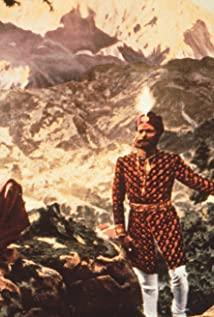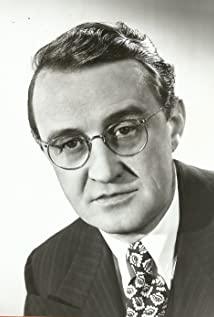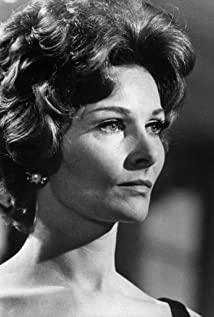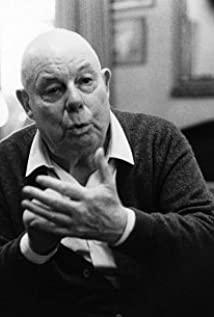French director Jean Renoir told us such a story that happened in India. The story begins with the world-famous big river, which originated in the Himalayas, meanders for more than 2500 kilometers, and flows towards the sea. Legend has it that in ancient times the river was swift and dangerous, and the river water harmed people. In order to save all living beings, Shiva came to the foot of the Himalayas and spread her hair. Workers shook their arms, boats came and went, philosophers meditated by the water, bathed in pilgrimages, and the market was bustling. The Harriet family by the river came from England. His father ran a jute workshop. The Harriets had many children under their knees. The adolescent Harriet, four younger sisters and his younger brother Berger played and studied in the yard every day. One day, the comfortable and peaceful life was disrupted by the handsome American Captain John, a visitor from Merini's house next door. John lost a leg in the war and was equipped with a prosthetic leg. The aura of the battle hero and the sunny face made Harriet and her friends fall in love. Valet is hot like fire, proactively attacked, and even got a kiss from John, Mellini is like ice, calm and rational, and deliberately keeps a distance from John, while Harriet is like water, calm appearance, feelings can be exquisite and rich. Surging. The relationship between the girls became more subtle. They quarreled, jealous, looked at each other, and competed to show each other. Then, Berger's accidental death made them grow up overnight.
Perhaps because of being in a foreign land, the characters in the story more or less exude a melancholy and fragile temperament.
John is at a loss. He is no longer a hero. In the face of reality, he can only build a fort, but he may not be able to protect himself. He wandered around the market, wandering in the jute factory, feeling dispirited. The unfamiliar environment did not bring him a sense of security, but a deeper loss. John once said that he flew far away because of his physical disability. But even if he went to his distant relatives, his strenuous dancing and falling down while playing, these details of life easily crushed his fortress. Mellini said, where to find the one-legged nation? After a lot of experience, John finally felt relieved. After a long talk with Harriet, letting her pull up when she got up also hinted that John had double liberated his body and mind. After all, John does not belong to India, the American dream is his belonging. But Merini is entangled. The mixed ancestry of Britain and India, British education and traditional Indian life have made her feel the anxiety of losing herself in her heart, and her resistance to fate is just a meaningless quarrel in her opinion. That's it. The beautiful girl Valet is lost. Valet's friends are only Harriet's family. She is beautiful and spoiled. She is dizzy in the face of love and even hurts others. But love for her is just a feeling. The tears I shed when I learned that John was about to leave were actually sentimental for waking up from the dream, not because of John. This is first love. As long as you meet him at the right time, it doesn't matter who he is. Harriet in the growth period is indulged in fantasy, sensitive and passionate like every literary young woman, and deeply fascinated by Indian culture. She understood the connotation of Diwali and the New Year Carnival, worshipped God Kali for destroying evil and good fortune, and wrote the love story between Krishna God and Radha. She is more like a native, and she is integrated with the land where she grew up. This enjoys the fun of childhood, carries the dreams of a girl, and experiences the throes of youth.
The concept of self, in a foreign country, has been diluted and continuously strengthened. Because in a foreign land, the desire to blend in leads to self-lost. It is precisely because of being in a foreign land that a completely different environment can more and more emphasize and release oneself. However, more people, floating between the two, become contradictory and hesitate.
When talking about this film, Jean Renoir said that some people have questioned whether India, as a mysterious and ancient country, can see India clearly from the eyes of Westerners. [Dahe] The personal experience of the original author Rumer Godden helped him dispel his doubts. Rumer was born, grew up, married, and gave birth to children in India. He has been marked with a deep cultural imprint. The rivers, idols, linden trees, dances, mysterious totems, and all living beings in the story are clearly India. Of course, the reason why Jean Renoir chose this script should also be related to his own experience. Born in a leisurely artistic family, he was injured and disabled his right leg during his early service career. Films such as [Game Rules] and [Great Disillusionment] made him famous. The 1930s was his heyday. Renoir traveled to France, the United States and other places throughout his life. In 1940, he lived in the United States. [Dahe] The characters in the play are somewhat of Jean Renoir's shadow. In the 1950s, the glorious era of black-and-white films was gone. The new wave of French film movements emerged and was in full swing, while the old Renoir was directing his first color film [Dahe]. Lian Po is old, [Dahe] lacks the sharpness and competence of his youth, and the narrative is soothing, it is inevitable that there are some old-style preaching and nagging. It is worth mentioning that, as a representative of poetic realism, India under Renoir's lens is full of artistic conception, bright colors and rich layers. Director Martin Scorsese commented that the color of the film is like a picture scroll, like the girls peeking at John's face through a fence, and the rest of the twin sisters in the afternoon, like an oil painting.
Nature, growth, contradictory opposition and unity, these propositions with dialectical materialist philosophy are the themes that Renoir has always paid attention to in movies. This film is no exception. After Berger's death, Harriet fell into depression, but Merini's father talked about Berger's death as a relief, and no longer had to face the troubles of the adult world. A few years later, the girls received a letter from John from the United States. It was when Harriet's little sister was born, they rushed to the newborn baby excitedly. The letter slipped quietly from their hands and drifted away in the wind. As for John, it has become a memory of the past. The big river flows slowly behind the girls and has not changed. Their lives continue in this magical land of India. This is the case with growth, where despair and hope, destruction and creation, death and rebirth alternate. Nature is like this, repeating itself, endlessly. For people, whether they are in a foreign land or on a journey, after the joys and sorrows, tomorrow will be a brand new day.
View more about The River reviews











